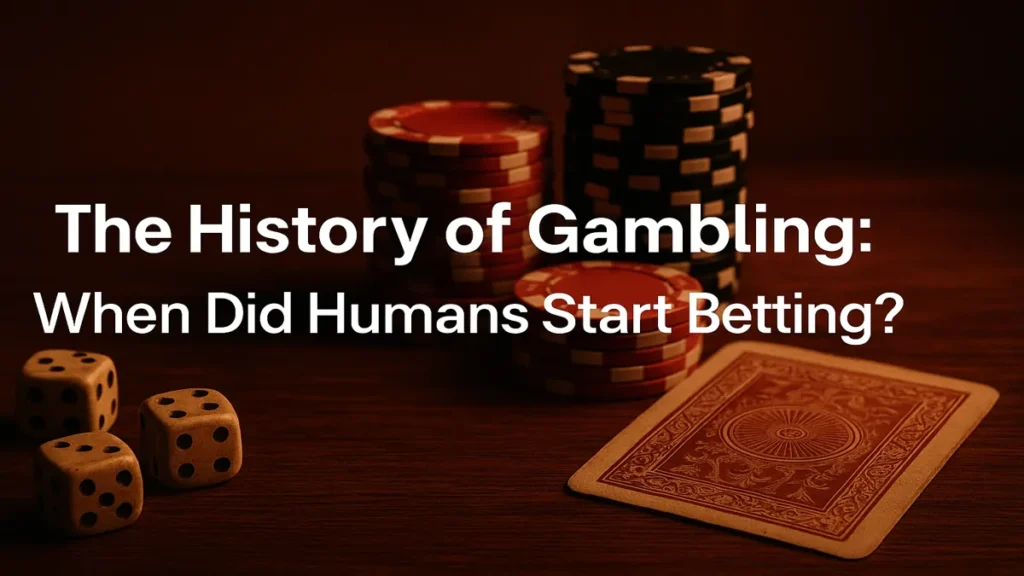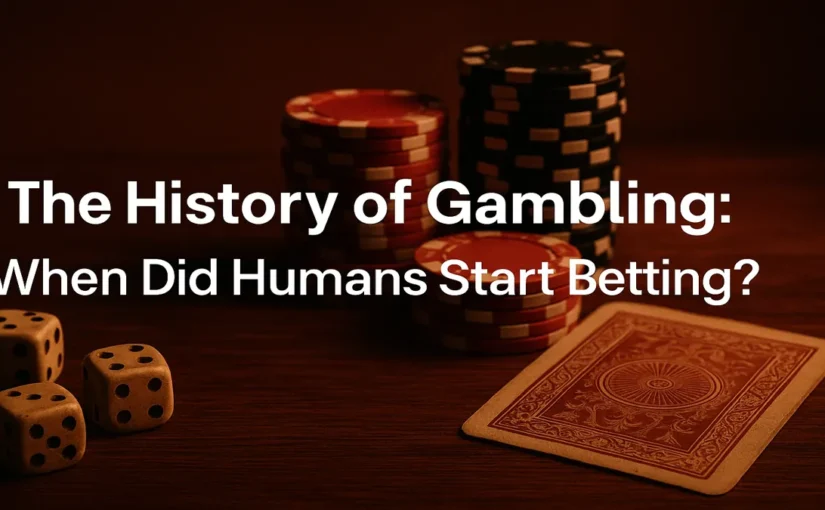Gambling is often considered a modern vice, closely tied to flashing casino lights and digital betting apps. However, the history of gambling stretches far beyond modern technology—deep into the roots of ancient civilizations. From primitive dice games to organized betting systems, humans have long been drawn to the thrill of chance. In this article, we explore the cultural and historical timeline of gambling, asking a central question: When did humans first start betting money?

Early Forms of Gambling in Ancient Civilizations
Dice, bones, and drawing lots – the oldest games of chance
Long before money even existed, ancient societies played games of chance using carved bones, stones, or dice made from animal parts. The earliest six-sided dice date back to Mesopotamia around 3000 BCE, and archaeological findings in China and Egypt suggest that gambling-like activities were widespread. While these early games weren’t always tied to currency, they show that humans have long been intrigued by randomness, fate, and luck.
Gambling in Ancient Greece, Rome, and China
Cultural acceptance and moral limits
In Ancient Greece, gambling was a popular pastime—so much so that even gods were believed to gamble for control over the universe in myth. Romans took it a step further with betting on gladiator games, chariot races, and dice. While gambling was technically illegal in Rome, it was widespread and socially embedded.
Meanwhile, in Ancient China, lottery-like games emerged during the Han Dynasty (~200 BCE), often linked to state funding and warfare. This shows how governments recognized the economic potential of organized gambling from very early on.
The Introduction of Money and Organized Betting
From goods and favors to coins and wagers
As coin-based economies developed, gambling transformed. People began to bet not only honor or goods but actual currency. By the Middle Ages, card games from Asia and the Middle East made their way into Europe, merging chance with structured rules and real money stakes.
The first official gambling houses appeared in the 17th century, such as the Ridotto in Venice (1638), marking the beginning of state-regulated gambling. This represented a turning point—from casual, cultural betting to structured economic systems built on wagering.
Gambling as Leisure, Entertainment, and Addiction
Cultural meanings that evolved with society
In the 19th and 20th centuries, gambling evolved into a mass leisure industry. From horse racing and sports betting to slot machines and lotteries, betting became part of public life. But with this growth came the rise of addiction, fraud, and controversy—leading many countries to both regulate and profit from gambling simultaneously.
Gambling is as old as civilization itself
The history of gambling shows us that betting is not a modern trend, but a deeply rooted human behavior. From early dice games to billion-dollar casino industries, gambling has always reflected our relationship with risk, reward, and uncertainty. Understanding its past can help us better navigate its place in our present culture—both as entertainment and a societal challenge.
